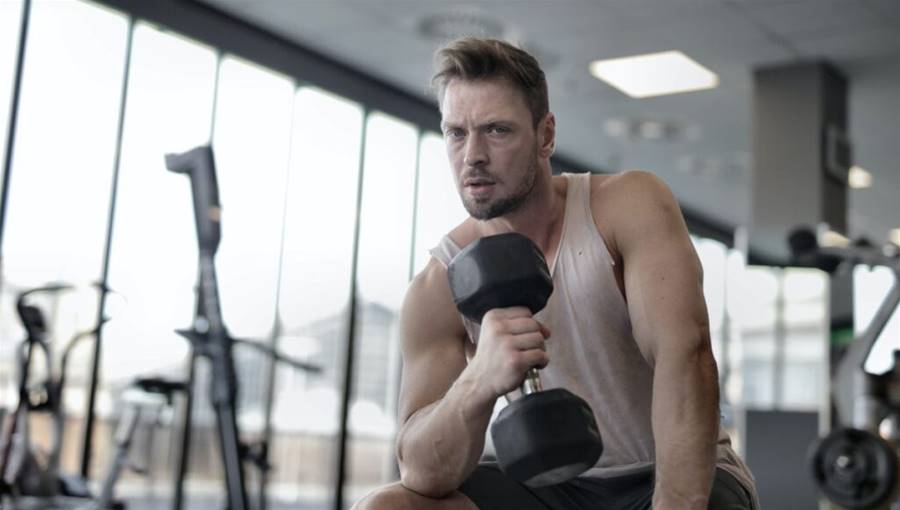

You probably heard of hammer curls, but did you know about any of these other variations? Try these top types of hammer curls to increase your biceps’ size.
It is difficult to add variety to your bicep training. Most of the workouts will get you having some kind of curl, after all, the main function of the muscle is to flex the elbow and to rotate the forearm. You can build more biceps with chin-ups as well, but sometimes you just want a different type of isolation exercise that can make your biceps bigger and wider. That is where the and its variations come into play.

These types of hammer curls were shared by no other than , , a professional bodybuilder, trainer and nutritionist who died in 2021. He is famous for sharing gym tips, and workouts and showing how he trained to achieve his goals.
Related:
You probably already know some of the benefits of the traditional , but these other variations shown by John Meadows should tackle your muscle in a different way that will keep you making gains on your arms.
Here are the top 4 types of hammer curls you should be doing to target your brachialis and biceps.
“Make sure you do at least one of these versions in your bicep workout every single time. And vary your rep range. Eights, tens, twelves, just vary it,” Meadows says.
Click on the video to see him demonstrating and talking about each of these options.
The process of building bigger biceps can be challenging and requires consistent effort and dedication to strength training and nutrition. It involves breaking down the muscle fibres through resistance training, allowing them to repair and grow stronger and larger over time.
However, the rate at which one’s biceps grow depends on a variety of factors, including genetics, training intensity, volume, frequency, and recovery.

For some people, gaining significant bicep size may be relatively easy, while for others, it may take much longer or require more specialized training techniques. It’s important to note that increasing muscle size is a gradual process, and it may take several weeks or even months to see noticeable changes. Additionally, a well-rounded strength training program that targets all major muscle groups in the body, along with a balanced and nutrient-dense diet, can help support overall muscle growth and development.
Benefits of Strength Training
There are many reasons why you should do strength training as part of your overall fitness routine. Here are some of the key benefits:

Overall, incorporating strength training into your fitness routine can have numerous benefits for your physical and mental health, and can help you live a happier, healthier, and more active lifestyle.
Having strong arms can offer many benefits, including:
The frequency of training your biceps and triceps depends on various factors, including your goals, overall training program, recovery capacity, and individual preferences.
However, a general guideline for most individuals is to train these muscle groups 1-2 times per week.
When designing your training schedule, it’s important to consider the principle of muscle recovery. Both biceps and triceps are relatively smaller muscle groups compared to larger muscle groups like the chest or back. This means they typically require less volume and recovery time.
If you’re following a split routine where you dedicate specific days to training different muscle groups, you could include a biceps and triceps workout as part of your arm day. This could be done once a week, allowing for adequate recovery time between sessions.
Alternatively, you might choose to incorporate biceps and triceps exercises into your upper body workouts on separate days. For example, you could train biceps on one day and triceps on another day during the week, with a few days of rest in between each session.

Remember, it’s essential to listen to your body and monitor your recovery. If you find that your biceps and triceps are not fully recovering between sessions or if you experience excessive muscle soreness, you may need to reduce the frequency or intensity of your training.
Ultimately, finding the optimal training frequency for your biceps and triceps will involve experimentation and adjusting based on your individual response to training. Consulting with a qualified fitness professional can also provide personalized guidance based on your specific needs and goals.
Image Sources

